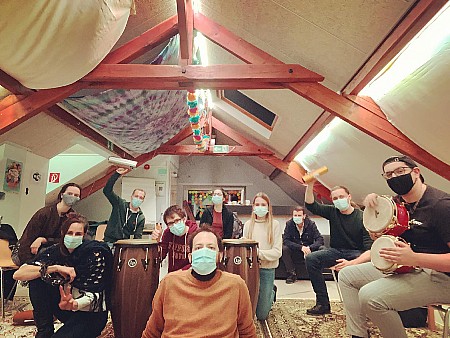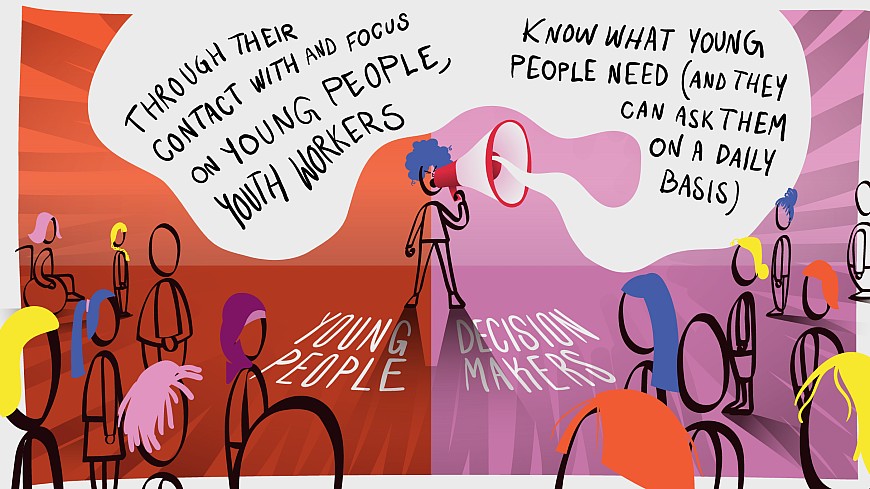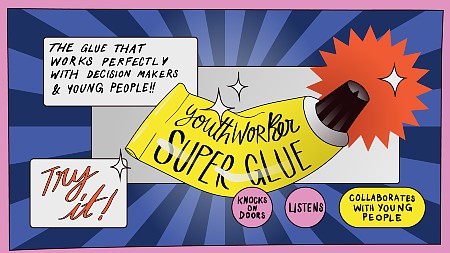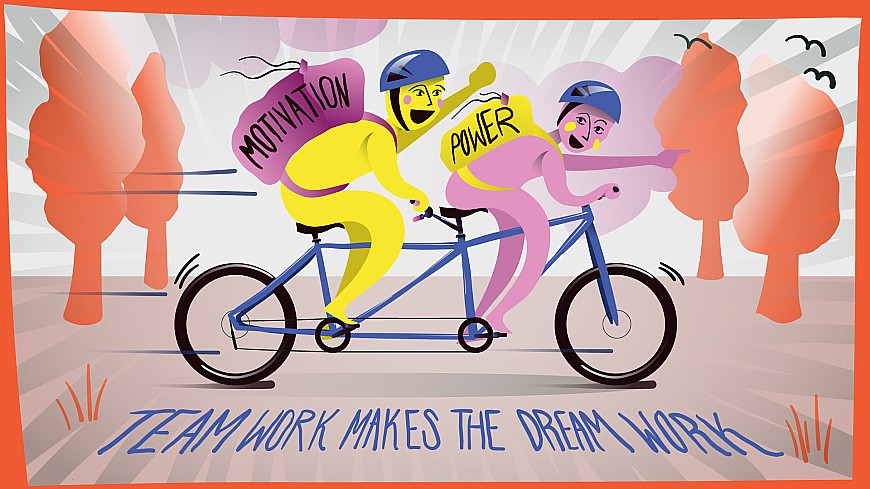Youth work changes people’s lives?!
by Christian Gebhard
29/06/2021
Youth work changes people’s lives – the title of this article was intriguing to me. Is it a question, a statement, a wish, or a reflection on what has already been attained? Numerous are the alternatives that lie in this simple set of words and I will do my best to answer the many underlying possibilities. Having worked in the field of youth work since 2014, as an educator, a project manager and now the director of a youth centre in Luxembourg, I can definitely say that youth work changes people’s lives. Every week, me and my team see hundreds of young people, aged 12 to 30, who come and visit us with very varied demands, interests and issues. Our main mission is to be there for teenagers and young adults on their road through life, whether by proposing a diverse range of activities, answering their questions or even creating training courses that they can be a part of every year. Given the wide range of actions that we are involved in, I think the trickier part is to pinpoint how, when, where and for whom youth work is a game changer, because humans don’t work like computers, they are pretty complicated bundles of interlaced influences.
 Youth work changes people’s lives personally
Youth work changes people’s lives personally

Bonding isn’t the only key factor to success, though, the young person and the youth worker both have to pull in the same direction. It is the youngster’s responsibility to voice their concerns, issues and dreams and it is the youth worker’s responsibility to give them attention, space and build the bridges for solutions. I always imagine youth work at the individual level is like riding a tandem bike – one person steers, the other provides the energy to keep going. The power and impact of youth work lies in this co-creation process between the young person and the youth worker and it is usually the only other place away from home that has the unique goal of bettering the young person’s life, for them, in a way that is free from any predefined agenda.
 Youth work changes people’s lives and the societal context they live in
Youth work changes people’s lives and the societal context they live in
Seeing the impact of youth work on society and young people’s lives is a tad trickier than at the individual level. Mainly because the changes at this level are indirect, long term and very diverse, depending on the focus of change that is at hand. Let me explain. When I think about the impact my youth work has had on the village where I work, examples that come to mind are: creating a new outdoor fitness centre for the youth of the village, lobbying for open discussions between young people and political representatives and mediating conflicts between younger and older generations that have arisen due to loud music and a youth-centred appropriation of public spaces. Youth workers are the key people for driving successful change and new possibilities, as they are the key workers in our communities who have a strong link to both sides of the discussion (young people and local representatives). Through their daily contact with young people and their focus on their needs, youth workers know what young people need (and they can ask them on a daily basis) and it is their responsibility to give young people’s voice a platform with decision makers. From my experience, decision makers also take the young people’s opinion into account better when it is backed by professional youth and social workers, especially because they know that we youth workers expect results and follow-up actions after discussions have ended.

Youth work’s impact on society is unique in the sense that it strives to create spaces and opportunities for and with young people and build bridges from young people to political and societal decision makers. Without youth work, decisions that impact young people’s lives would be less formatted to their needs and youth work is one of the guarantors that young people are not forgotten in these crucial discussions and decisions. These points lead to the conclusion that youth work is one of the biggest players in shaping a society that works with and for the interests of young people, because if not for us youth workers, who else?
 Youth work changes people’s lives?
Youth work changes people’s lives?
The recognition of this crucial role still has a long way to go though. Even though youth workers advocate and work for young people’s place in society, it is not a given fact that their hard work is respected and taken into account. More than once, I have had to remind decision makers to back their promises, to follow up on specific demands, to tailor their workshops to the availabilities and capacities of young people. The process has been getting better over the years but we still have a long way to go before young people are truly seen as “equal” in our society. We should never forget that young people should have every right to voice their concerns, every right to say what they like and do not, because it is foremost their future and their children’s futures that are impacted by the decisions we take today.
 Youth work changes people’s lives!
Youth work changes people’s lives!

 Let’s follow the approach of the EYWC
Let’s follow the approach of the EYWC
The European Youth Work Convention was a great example of how youth work should be organised with all stakeholders that are involved in youth work directly or indirectly. It was a unique opportunity for youth workers, decision makers, policy shapers and youth representatives to sit at a table together to discuss current issues that affect young people’s lives. The EYWC set the example on how we should all work together, taking varied opinions into account and tackling current issues as equals, as a team. My wish for the future is that the same methods and compositions are transferred into national delegations when aspects of youth work are discussed at a national level. This is the future, this is what we need to shape, innovate and create effective, evidence-based youth work that benefits young people in this and the next generations.




